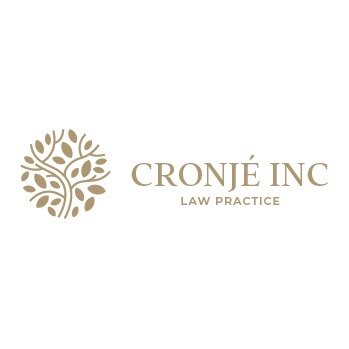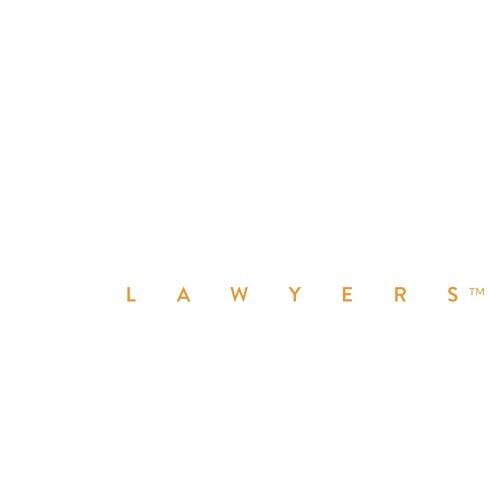Best Water Law Lawyers in Windhoek
Share your needs with us, get contacted by law firms.
Free. Takes 2 min.
List of the best lawyers in Windhoek, Namibia
About Water Law in Windhoek, Namibia
Water Law in Windhoek, Namibia, is a specialized field that governs the ownership, use, management, and conservation of water resources within the city and the broader Namibian context. It concerns the rights and responsibilities of individuals, communities, businesses, and governmental bodies related to the use and protection of water. Given Namibia's status as one of the driest countries in sub-Saharan Africa, these laws are particularly stringent and vital for sustainable water management and conflict prevention among users. Water law is guided by national legislation, notably the Water Resources Management Act, as well as municipal regulations specific to Windhoek.
Why You May Need a Lawyer
Individuals and organizations in Windhoek may need legal advice or representation in water law for various reasons. Common situations include:
- Disputes over water rights allocation or access to water sources
- Water usage restrictions imposed due to drought or scarcity
- Challenges regarding permits for boreholes, irrigation, or industrial water use
- Compliance issues arising from pollution or contamination allegations
- Negotiating contracts relating to water supply or infrastructure projects
- Conflict resolution between neighbors or businesses over groundwater usage
- Guidance on municipal water tariffs and billing disputes
- Advice for real estate developments that impact local water sources
- Representation in governmental hearings or judicial proceedings involving water matters
Local Laws Overview
The regulatory framework for water law in Windhoek is primarily set by the Water Resources Management Act, 2013 (Act No. 11 of 2013). This legislation establishes principles for sustainable water resource management, equitable access to water, and the protection of water quality. Local authorities, such as the City of Windhoek, implement additional by-laws and water policies tailored to urban needs and constraints. The Water Resources Management Act regulates:
- Water abstraction and borehole drilling permits
- Wastewater disposal and pollution prevention
- Licensing requirements for commercial and agricultural water usage
- Water conservation measures and emergency restrictions in times of drought
- Protection of watercourses and wetlands
- Water quality standards for domestic, industrial, and agricultural use
These laws are enforced by national bodies such as the Ministry of Agriculture, Water and Land Reform, as well as local municipal authorities. Violations can lead to substantial fines or even criminal liability in severe cases.
Frequently Asked Questions
What is the main legal framework governing water usage in Windhoek?
The Water Resources Management Act, 2013, is the main law regulating water rights, usage, quality, and conservation in Windhoek and across Namibia.
Do I need a permit to drill a borehole in Windhoek?
Yes, drilling a borehole requires authorization from the relevant municipal and national authorities to ensure sustainable water abstraction.
Can water rights be transferred or sold?
Water rights are regulated and typically attached to specific land parcels or uses. Transfers are strictly controlled to prevent overexploitation and require official approval.
What should I do if my business is accused of polluting water sources?
Seek legal advice immediately. You may be subject to investigation, fines, or remedial orders. It is important to respond promptly and cooperate with authorities.
Are water restrictions enforceable by law in Windhoek?
Yes, municipal water restrictions, particularly during droughts or shortages, have the force of law and noncompliance can lead to penalties.
What happens if my neighbor’s borehole affects my water supply?
This may constitute a legal dispute over water rights or nuisance. A lawyer can advise you on recourse, negotiation, or formal complaint procedures.
How are water tariffs set and can they be challenged?
Water tariffs are determined by local authorities based on usage, infrastructure, and supply costs. Challenges are possible, often through appeals to municipal bodies.
What environmental protections relate to water law?
There are strict regulations on pollution control, wastewater disposal, and conservation of ecosystems relying on water sources to protect the environment.
Can I store rainwater or use greywater on my property?
Rainwater harvesting and greywater recycling are encouraged, but systems must comply with health and safety standards. Consultation with authorities is recommended.
Where can I file a complaint regarding water issues in Windhoek?
Complaints can be made to the City of Windhoek's Water Division or the Ministry of Agriculture, Water and Land Reform, depending on the nature of the issue.
Additional Resources
For more information and assistance related to Water Law in Windhoek, you may contact or consult the following:
- Ministry of Agriculture, Water and Land Reform: Responsible for water policy and permits
- City of Windhoek Water Division: Handles municipal water supply, restrictions, and billing
- Legal Assistance Centre (LAC): Provides legal advice and public education on water rights
- Namibia Water Corporation (NamWater): Manages bulk water supply and infrastructure
- Environmental organizations such as the Namibia Nature Foundation for conservation guidance
Next Steps
If you require legal assistance in Water Law in Windhoek, start by gathering any relevant documents such as permits, correspondence, or notices related to your water issue. Clearly identify the nature of your problem or legal question. Consider contacting a lawyer or law firm with experience in Water Law and Namibian environmental regulations. You can also reach out to local legal aid resources for guidance. When meeting with a legal professional, be prepared to provide a timeline of events and any supporting evidence. Keep records of your communications with authorities or other parties. Early legal intervention can help prevent escalated disputes and ensure your rights and interests are effectively protected.
Lawzana helps you find the best lawyers and law firms in Windhoek through a curated and pre-screened list of qualified legal professionals. Our platform offers rankings and detailed profiles of attorneys and law firms, allowing you to compare based on practice areas, including Water Law, experience, and client feedback.
Each profile includes a description of the firm's areas of practice, client reviews, team members and partners, year of establishment, spoken languages, office locations, contact information, social media presence, and any published articles or resources. Most firms on our platform speak English and are experienced in both local and international legal matters.
Get a quote from top-rated law firms in Windhoek, Namibia — quickly, securely, and without unnecessary hassle.
Disclaimer:
The information provided on this page is for general informational purposes only and does not constitute legal advice. While we strive to ensure the accuracy and relevance of the content, legal information may change over time, and interpretations of the law can vary. You should always consult with a qualified legal professional for advice specific to your situation.
We disclaim all liability for actions taken or not taken based on the content of this page. If you believe any information is incorrect or outdated, please contact us, and we will review and update it where appropriate.















